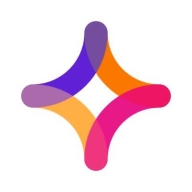

Oracle Data Integrator and Jitterbit Harmony are tools in the data integration category. Oracle Data Integrator seems to have the upper hand in comprehensive integration capabilities, while Jitterbit Harmony is preferred for its ease of use.
Features: Oracle Data Integrator offers extensive ETL capabilities, efficient data transformation, and the ability to handle complex data workflows. Jitterbit Harmony provides pre-built templates, flexible API management, and rapid integration with Salesforce, facilitating a user-friendly experience.
Room for Improvement: Oracle Data Integrator could enhance its user interface for improved intuitiveness, reduce the complexity of setup, and streamline cloud integration processes. Jitterbit Harmony could benefit from expanding its range of pre-built connectors, improving customization options, and enhancing real-time processing capabilities.
Ease of Deployment and Customer Service: Jitterbit Harmony boasts rapid deployment with its cloud-based solutions and provides proactive support services, emphasizing simplicity and efficiency. Oracle Data Integrator requires longer deployment times due to its on-premises solutions, although it benefits from Oracle's extensive support infrastructure for thorough problem-solving assistance.
Pricing and ROI: Oracle Data Integrator involves a higher initial investment through its licensing model, which could potentially result in a longer time to achieve ROI. In contrast, Jitterbit Harmony uses subscription-based pricing, allowing for quicker deployment and faster ROI, making it a more cost-effective choice for many businesses.
I can get solutions quickly, and any tickets I submit to Oracle are responded to and resolved rapidly.
If I use a source system like Oracle and a target system like Teradata, ODI will still run, but it struggles a bit with different infrastructures.
ODI is cheaper compared to Informatica PowerCenter and IBM DataStage.
Oracle Data Integrator (ODI) is powerful and strong if my system uses Oracle components for environments like OLTP, enterprise data warehouse, or data marts.


Jitterbit Harmony is a comprehensive platform for data integration and API management, enabling seamless synchronization and automation across cloud-based and on-premises applications.
Users leverage Jitterbit Harmony to integrate systems like ERP and CRM applications, simplifying complex data workflows and enhancing automation. It supports efficient data migration and ensures smooth connectivity, handling diverse integration needs and helping streamline business processes. Users emphasize its drag-and-drop functionality and extensive templates, which contribute to its robust performance. However, improvements are needed in data mapping, error message clarity, and documentation, especially when dealing with large data volumes.
What are the key features of Jitterbit Harmony?Companies across retail, manufacturing, healthcare, and finance sectors use Jitterbit Harmony to integrate critical applications and automate workflows. In retail, it connects inventory systems with sales platforms, reducing manual effort. Manufacturers sync their ERP systems with supply chain software, optimizing operations. Healthcare organizations integrate patient management systems with insurance databases, streamlining patient care. Financial institutions use it to connect accounting software with banking systems, ensuring real-time financial data exchange.
Oracle Data Integrator (ODI) is a data integration software solution that provides a unified infrastructure to streamline data and application integration projects. It uses a powerful design approach to data integration, which separates the declarative rules from the implementation details. The solution is based on a unique ELT (Extract Load Transform) architecture, eliminating the need for a standalone ETL server and proprietary engine.
Oracle Data Integrator Features
ODI has many valuable key features. Some of the most useful ones include:
Oracle Data Integrator Benefits
There are many benefits to implementing ODI. Some of the biggest advantages the solution offers include:
Reviews from Real Users
Below are some reviews and helpful feedback written by PeerSpot users currently using the Oracle Data Integrator (ODI) solution.
Brian D., Business Process and Strategy Specialist Advisor at NTTData, says, “The Knowledge Module (KM) is my favorite feature of ODI. This is where I learned how to use variables to make jobs dynamic. I took that knowledge and created a KM that would go into iTunes and pull the sales of eBooks. Making something that is reusable, like a KM, is important to not only reduce build time but also maintenance in the future.”
Ashok S., Applications Support Manager at a marketing services firm, mentions, "The most valuable features of ODI are the ease of development, you can have a template, and you can onboard transfer very quickly. There's a lot of knowledge modules available that we can use. If you want to connect, for example, a Sibyl, SQL, Oracle, or different products, we don't have to develop them from scratch. They are available, but if it's not, we can go into the marketplace and see if there's a connector there. Having the connector available reduces the amount of hard work needed. We only have to put the inputs and outputs. In some of the products, we use there is already integration available for ODI, which is helpful."
We monitor all Data Integration reviews to prevent fraudulent reviews and keep review quality high. We do not post reviews by company employees or direct competitors. We validate each review for authenticity via cross-reference with LinkedIn, and personal follow-up with the reviewer when necessary.